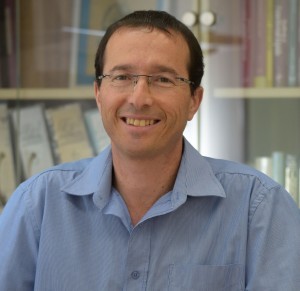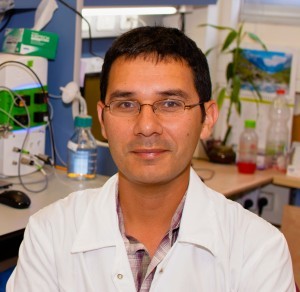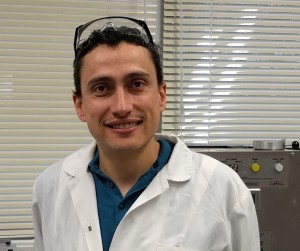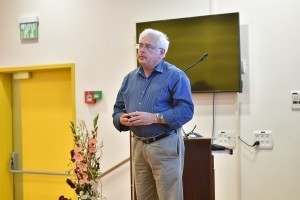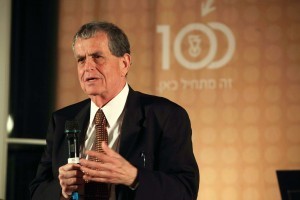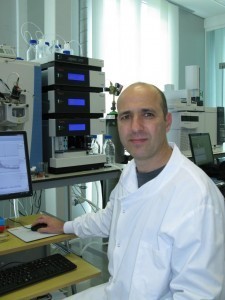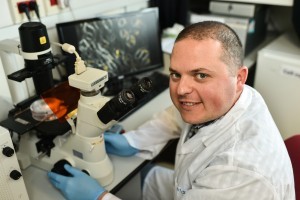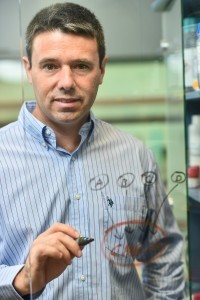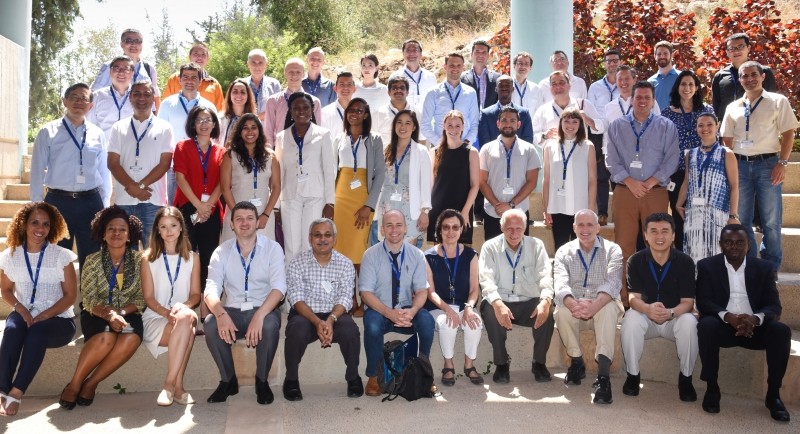Technion held the second cancer conference as part of a collaborated effort with the Laura and Isaac Perlmutter Cancer Center at NYU Langone Medical Center while at the same time construction has begun on the new Perlmutter-Supported Technion Integrative Cancer Center
According to Professor Ze’ev Ronai, “The Technion is the ideal place for cancer research for a number of reasons: the institute’s high level of researchers and clinicians; unique interfaces between medicine, engineering, life sciences and fundamental science; and close ties with hospitals affiliated with the institute’s Faculty of Medicine. Our vision is to offer patients the most advanced methods for diagnosing and treating cancer. The methods to be developed as part of the new center will allow hospitals to provide each patient with the most precise diagnosis and personalized treatment plan. It will bridge interactions between scientists and clinicians and will be of great benefit to both sides.” Professor Ze’ev Ronai, of the Sanford Burnham Prebys Medical Discovery Institute will head the Technion Integrative Cancer Center with Research Professor Aaron Ciechanover. The Technion Integrative Cancer Center is being established with the generous support of Laura and Isaac Perlmutter and Lester Crown. “The Perlmutters have been sponsoring basic research that can be translated into viable applications to treat cancer patients for years, and the new center will act in this spirit,” he added.
Professors Ronai and Ciechanover opened the second joint Technion-NYU Langone Medical Center (NYULMC) conference as part of a collaboration that began about a year and a half ago between the Technion, NYU-LMC, and NYU Langone’s Perlmutter Cancer Center.
Cancer: A Chronic Illness
“More than 500 thousand Americans die of cancer each year, and every day around 4,500 new cases are diagnosed,” said Research Professor Aaron Ciechanover, the 2004 Nobel Laureate in Chemistry. “In comparison, in Israel, which is clearly smaller, each year there are 20,000 cancer related deaths and 30,000 new cases. The good news is that cancer research in Israel is very advanced, and the discovery of the ubiquitin system led to the development of Velcade – the first approved cancer therapy effective in the treatment of multiple myeloma (MM), a cancer that starts in the bone marrow’s plasma cells. Many other excellent drugs are in advanced stages of development. Personalized medicine will help us transform cancer from being a serious and often fatal illness into a chronic disease, and modern medicine has already managed to significantly inhibit some cancer types. I have no doubt that our cooperation with LMC will lead to a quantum leap in this area.”
Immunotherapy: Releasing the Restraints
Professors Ze’ev Ronai, who is returning to Israel after a prolonged stay in the United States, specializes in cellular signaling associated with malignant tumors development and resistance to therapy. “Cancer tumors are flexible entities, they know how to develop resistance, metastasize and enter a state of dormancy that deceives the body as well as the medical team. Another challenge is the internal heterogeneity of the tumor, which harbors various types of cancer cells, that enables it to survive aggressive medical treatments.”
Prof. Ronai grew up in the Neve Sha’anan Haifa neighborhood and studied at the Hugim High School. He completed all of his degrees at the Hebrew University of Jerusalem. In 1985, after completing his doctorate degree in immunology, he went on to pursue his postdoc at the Cancer Center of Columbia University in New York. In the twenty years that followed he held a number of senior positions in the greater NYC area and in 2005 he began working at the Sanford Burnham Prebys Medical Discovery Institute in San Diego, where he has held a number of leadership position. “Today there are new developments in the approach to cancer treatment and one of them is immunotherapy developed by Professor James P. Allison (who recently received the Harvey Prize from the Technion) and Professor Tasuku Honjo. The immunotherapy approach is based on an understanding that the immune system is much more sophisticated and effective than any form of synthetic drug we could ever produce. Future therapies are likely to combine immunotherapies with specific medicines that target individual tumor’s makeup”.
Focusing on Promising Research
Professor Dafna Bar-Sagi, Senior Vice President and Vice Dean for Science and Chief Scientific Officer at NYU Langone, said that this second conference concludes the first year of concrete collaboration between the two institutes. “At first we chose two mixed research teams, and now we are looking to expand the collaboration of these joint studies on a larger scale. Our greatest challenge is to identify the right area to invest in. Our donors want to make a global impact and save lives, and to this end we intend to focus on promising studies that will become trailblazers of new cancer therapies.”
Targeted Cancer Therapy
Professor Eyal Gottlieb, Director of the Beatson Cancer Metabolism Research Unit at the University of Glasgow, Scotland, was recently recruited by the Technion; the recruiting efforts were led by Professors Ronai and Ciechanover. He is an internationally renowned expert in the field of metabolism – measuring components of cellular metabolism in cells under varying conditions. “Today we know that the metabolism of cancerous cells differs from that of regular cells and varies according to the type of tumor,” explains Prof. Gottlieb. “Current cancer therapies, such as radiation and chemotherapy, damage not only the tumor but also the surrounding healthy tissues, causing serious side effects. If we can identify the unique metabolic characteristics of cancer cells we will be able not only to diagnose the disease at an early stage, but also to direct the treatment with molecular targeted drugs. This is our dream, as cancer researchers, we hope to attack cancer cells directly without damaging the surrounding healthy tissues. We have already made strides in this direction, for example, scanning glucose levels at the cellular level.”
Prof. Gottlieb had originally planned to study geography and at the last minute decided to switch to veterinary medicine, which he studied at the Robert H. Smith Faculty of Agriculture, Food and Environment of the Hebrew University of Jerusalem in Rehovot. “At the time I worked at a horse ranch and I was excited about the idea of continuing to work with animals. Ultimately my studies led me to Master’s and PhD degrees in cancer research at the Weizmann Institute of Science; I later completed my postdoc in the US and from there ended up in Scotland.”
He accepted Professors Ronai and Ciechanover’s request to join the Technion and return to Israel despite knowing that the research budget here would not be the same as what he was used to in Scotland. “My first encounter with the Technion was excellent – I was quickly invited to meet the President of the Technion, and I instantly understood that there is a culture of cooperation here that is unreserved by hierarchical roles and formalities. I believe that this type of campus culture is essential and significantly impacts the motivation of researchers as well as the level of research. It is clear to me that we are at the turning point of a great era.” Prof. Gottlieb will head the metabolic center currently being established at the Technion with the generous donation of Laura and Isaac (“Ike”) Perlmutter that will be named after the couple.
Initial Research Projects
In the first stage of the joint LMC-Technion activities, two mixed research projects have been selected for support. The first project, led by Professor Israel Vlodavsky (Technion) and Professor Harvey Pass (NYULMC), investigates the heparanase (HPSE) activity – an enzyme that breaks down intercellular glycan units and is involved in the ability of cancer cells to grow and metastasize at distant sites.
The study revealed high levels of heparanase in mesothelioma cultures; mesothelioma is a rare and aggressive cancer that has no cure to date. Heparanase inhibitors (compounds called PG-545), developed by the two researchers to curtail the tumor growth by suppressing heparanase, have already entered the first stage of clinical trials. “According to our findings,” explains Prof. Vlodavsky, “there is a significantly greater positive effect as compared with the chemotherapy drug Cisplatin. Moreover, we found that chemotherapy often leads to a dramatic increase in the level of heparanase, which encourages growth and creates resistance to treatment. We suspect that chemotherapy will most likely never completely disappear from the world, but will be carried out using heparanase inhibitors to prevent its negative effect.
The other research project, led by Professor Marcelle Machluf (Technion) and Associate Professor Eva Hernando-Monge (NYULMC), investigates the possibility of suppressing cancer metastasis in the brain using a novel drug delivery system. According to Prof. Machluf, “The idea is to adapt this mission to the delivery system we have already developed for other purposes. Our system is based on nano-vesicles that carry the drug to the target, and in this study we are checking the possibility of loading them with anticancer drugs and injecting them into the bloodstream. Through the nano-vesicles, the drugs will be able to cross the blood-brain barrier (BBB), detect the brain tumor and attack it directly. Mice experiments have shown that the mechanism works – the drug reaches only the tumor thereby decreasing side effects. The results are very dramatic: one injection led to tumor volume decrease of about 70%, and additional injections led to further reduction. What is left is to complete the preclinical trials and examine the impact of this technology on humans.”
Scientist Cannot Work in a Vacuum
In his opening remarks at the conference Professor Eliezer Shalev, Dean of the Rapport Faculty of Medicine, began, “Scientific research is no longer a ‘one-man show.’ The saying ‘no man is an island’ is especially true today where scientific activities warrant collaboration in order to succeed. Nowadays one cannot move forward working alone; you need to work as a unit, that is, in cooperation with interdisciplinary researchers from different fields. This is certainly true to our specific subject of cancer research, which cannot advance without the convergence of excellent basic research, physical and mathematical models, biological and medical knowledge, elements of computing and engineering, and most importantly, a close bond between patients and their treating oncologists. This conference is the fulfillment of a vision held by the couple Laura and Isaac Perlmutter, who seek to make a meaningful impact on the world through science and medicine.”
On the Path to Dramatic Results
The joint conferences coupled with the establishment of the Technion Integrative Cancer Center were made possible thanks to the generous donation of Laura and Isaac Perlmutter. “Ike and I have been searching for a long time for ways to link the breakthroughs of Israeli science and research to our deep commitment to the NYU Langone Medical Center,” said Laura Perlmutter. “This partnership between the Technion and NYU Langone will allow us to inaugurate a more focused approach to cancer research and treatment. We have no doubt that this joint effort, which prevents duplication of research initiatives while streamlining the activities of donors and prominent researchers, will lead to dramatic results in combating this disease.”
